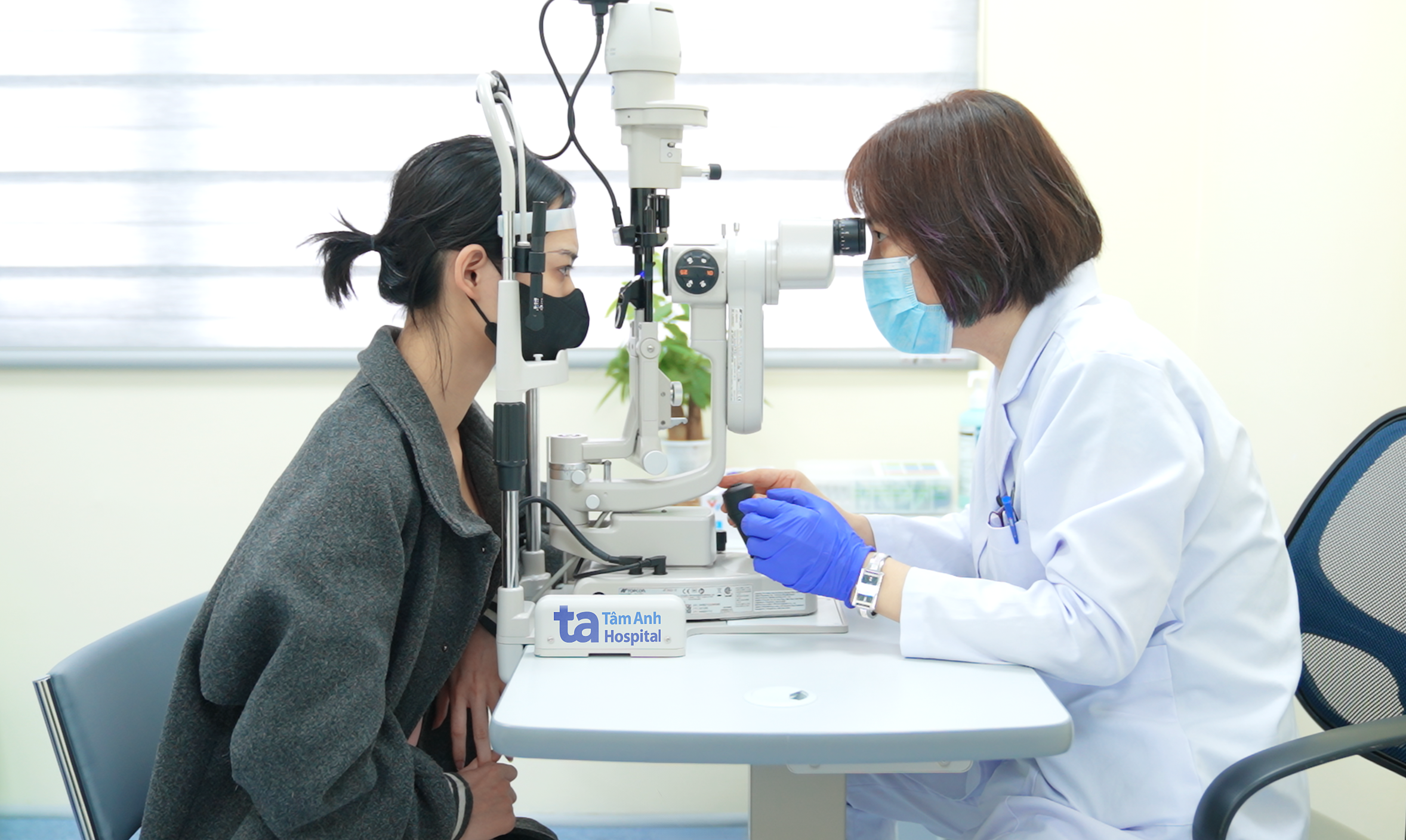The cornea is the transparent front part of the eye that protects the eye and focuses light. When the cornea becomes inflamed, the eye turns red, becomes painful, and develops blurred vision and light sensitivity. According to Dr. Le Thanh Huyen from the High-Tech Eye Center at Tam Anh General Hospital, keratitis can be caused by viruses, bacteria, and parasites. Eye injuries can also cause corneal damage, leading to inflammation. Several bad habits also increase the risk of developing this condition.
Improper contact lens use
Incorrect use of contact lenses is a common cause of corneal inflammation and damage. Contact lenses are in direct contact with the cornea, and improper handling can allow bacteria, viruses, fungi, or parasites to enter the cornea.
Dr. Huyen said that people with contact lens-related keratitis often have the habit of wearing their lenses continuously for long periods, especially overnight, without removing them as directed by the manufacturer. Wearing contact lenses while swimming, bathing, or coming into contact with unclean water, not washing hands thoroughly before inserting and removing lenses also makes the eyes prone to keratitis. Improper cleaning and storage of contact lenses, such as using unsuitable lens solutions, not cleaning or using a dirty lens case, and not changing the lens solution, also increases the risk.
 |
A doctor examines a woman's eyes. Illustrative photo: *Tam Anh General Hospital* |
Foreign objects in the eye
Foreign bodies such as dust, sand, eyelashes, or small metal fragments can scratch the cornea and cause inflammation if not removed promptly. These injuries create an entry point for bacteria, viruses, and other microorganisms, increasing the risk of infectious keratitis.
Not protecting your eyes outdoors
Prolonged exposure to ultraviolet (UV) rays without eye protection can damage the corneal epithelium, leading to radiation keratitis. This condition usually occurs when the eyes are frequently exposed to direct, high-intensity sunlight or when working with welding equipment without specialized protective eyewear. Repeated occurrences or improper treatment can lead to long-term corneal damage.
Vitamin A deficiency
Vitamin A plays a vital role in maintaining corneal health. Insufficient vitamin A intake, especially in malnourished children, can cause dry eyes and keratitis, leading to ulcers and blindness if the deficiency persists.
Frequent eye rubbing
This is a bad habit that many people unconsciously do when their eyes feel itchy, irritated, or red. Rubbing the eyes can damage the cornea or introduce bacteria and viruses, especially if hands are not clean. If your eyes are uncomfortable, use clean water or artificial tears to soothe them or wash away foreign particles.
To prevent keratitis, Dr. Huyen recommends limiting close contact with people who have eye infections. Use protective eyewear when working in environments with a risk of eye injury (construction sites, laboratories) or when playing sports. Wear UV-protective sunglasses outdoors to reduce the risk of radiation keratitis. Pay attention to hand hygiene and use contact lenses as directed by the manufacturer.
Keratitis can become serious, so patients should seek medical attention and treatment promptly. Do not self-medicate with eye drops, especially those containing corticosteroids or antibiotics, without consulting an ophthalmologist.
Khue Lam
| Readers can submit questions about ophthalmology here for doctors to answer. |












